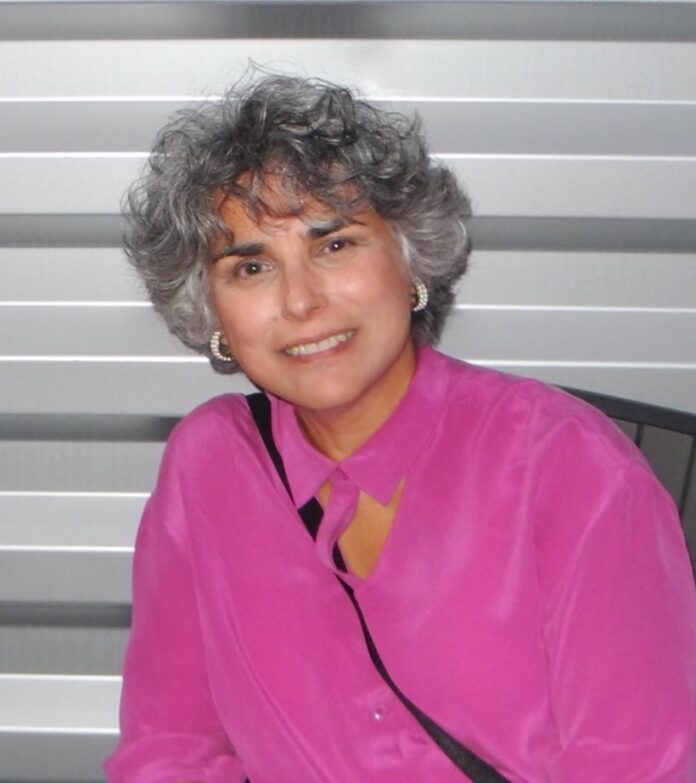By Fern Schumer Chapman
Scholars and historians who investigate the Holocaust categorize those involved into three groups: the perpetrators, the victims, and the bystanders. Countless bystanders witnessed horrific abuses, then atrocities, in complicit silence. Their inaction enabled the perpetrators to carry out an appalling campaign of mass murder.
School board members in Southlake, Texas – one of the state’s top-ranked districts — showed themselves as bystanders in giving “the benefit of the doubt” to a school administrator who had instructed teachers to provide books offering “opposing perspectives” on the Holocaust. School officials explained that this is required under a new Texas law restricting how teachers can present historical and current events, including the Holocaust and America’s history of racism. They also were accommodating a group of parents who have been fighting for more than a year to obstruct new diversity and inclusion programs.
They are not alone. This gathering threat will radically alter what America’s children are taught about the Holocaust and other histories of marginalized people. Alarmingly, several states have introduced similar measures under pressure from parents who oppose teaching about racism, anti-LGBTQ bigotry, and other prejudices, often under the false label of critical race theory.
Censorship and revisionist history went unaddressed in Southlake, where school superintendent Lane Ledbetter quickly walked back the school administrator’s remarks. No one, she said in a statement, meant “to convey that the Holocaust was anything less than a terrible event in history. Additionally, we recognize there are not two sides of the Holocaust.”
While it’s reassuring to hear that the school district conceded there are not two sides to the Holocaust, this tone-deaf “apology” is filled with timid, oblivious, complicit language. The Holocaust was not “a terrible event”; it was one of history’s most heinous crimes against humanity.
We are seeing exactly how Nazis gained traction – in small steps. School officials in Southlake had an opportunity to take a stand, confront a wrong, and lead opposition to a dangerous mandate.
“If I were the superintendent,” Southlake alumnus Jake Berman told the school board, “I would say, ‘We’re not going to take part in this law.’” Berman also described the severe anti-Jewish bullying he endured in the district two decades ago. He said the slurs drove him to contemplate suicide and led to depression, even in adulthood. Berman also pointed out that the school’s inaction feeds a culture where more anti-Jewish prejudice and racism can thrive.
“The message you and the state are sending to your teachers opens the door for more of this type of [bullying] behavior in your students,” he said. “If you don’t think that these same attacks are happening in your schools today with regard to someone’s skin color, gender or religion, you are sorely mistaken.”
In the classroom, the likely result is a chilling effect on teaching anything at all about the Holocaust. Teachers may fear reprisal and even the loss of their jobs should they fail to conform to the new law.
What we’re seeing here is the proverbial frog in a pot of water. The temperature gradually, almost imperceptibly, heats up. Holocaust revisionism starts with little steps that cast doubt on the absolute reality of a brutal, systemic, painstakingly recorded slaughter. Slowly, but intentionally, these revisionists are working to deny that reality, dulling our revulsion to atrocity while establishing anti-Jewish bigotry as normal.
Since the publication of my first book, Motherland, my mother and I have shared her story with students at hundreds of schools. In 1938, when she was 12, she fled Nazi Germany, coming to America as an unaccompanied minor. In all our school presentations, addressing thousands of students, not once have we been asked about “opposing views.” The questions we invariably receive are: “Why are Jews targeted? Why do people hate Jews so much? How could the world let this happen?”
These are serious questions demanding complex answers, which can be developed only through the use of critical thinking skills — precisely what dedicated and sensitive teachers hope to impart to their students.
One of my life’s overarching goals has been to cultivate empathy in the hearts of students. As teachers, as parents, as Americans, we all must find the courage to speak out against bullying, prejudice, and isolation. My hope is that students will develop the moral fortitude to act with respect and compassion and become assertive citizens of conscience.
“If you are neutral in situations of injustice, you have chosen the side of the oppressor,” Desmond Tutu, a South African Anglican cleric and theologian, who was awarded the Nobel Peace Prize for his work as an anti-apartheid and human rights activist, has said. “If an elephant has its foot on the tail of a mouse, and you say that you are neutral, the mouse will not appreciate your neutrality.”
In its cowardly failure to speak out against an unconscionable state law — or even its own administrator — the Southlake school board demonstrates a neutrality the mouse would not appreciate. It’s modeling, for students and our nation, exactly how to be a complicit bystander.
Author Fern Schumer Chapman has written several books documenting her mother’s experiences during and after the Holocaust, including “Motherland,” “Is It Night or Day?,” and “Brothers, Sisters, Strangers.”




